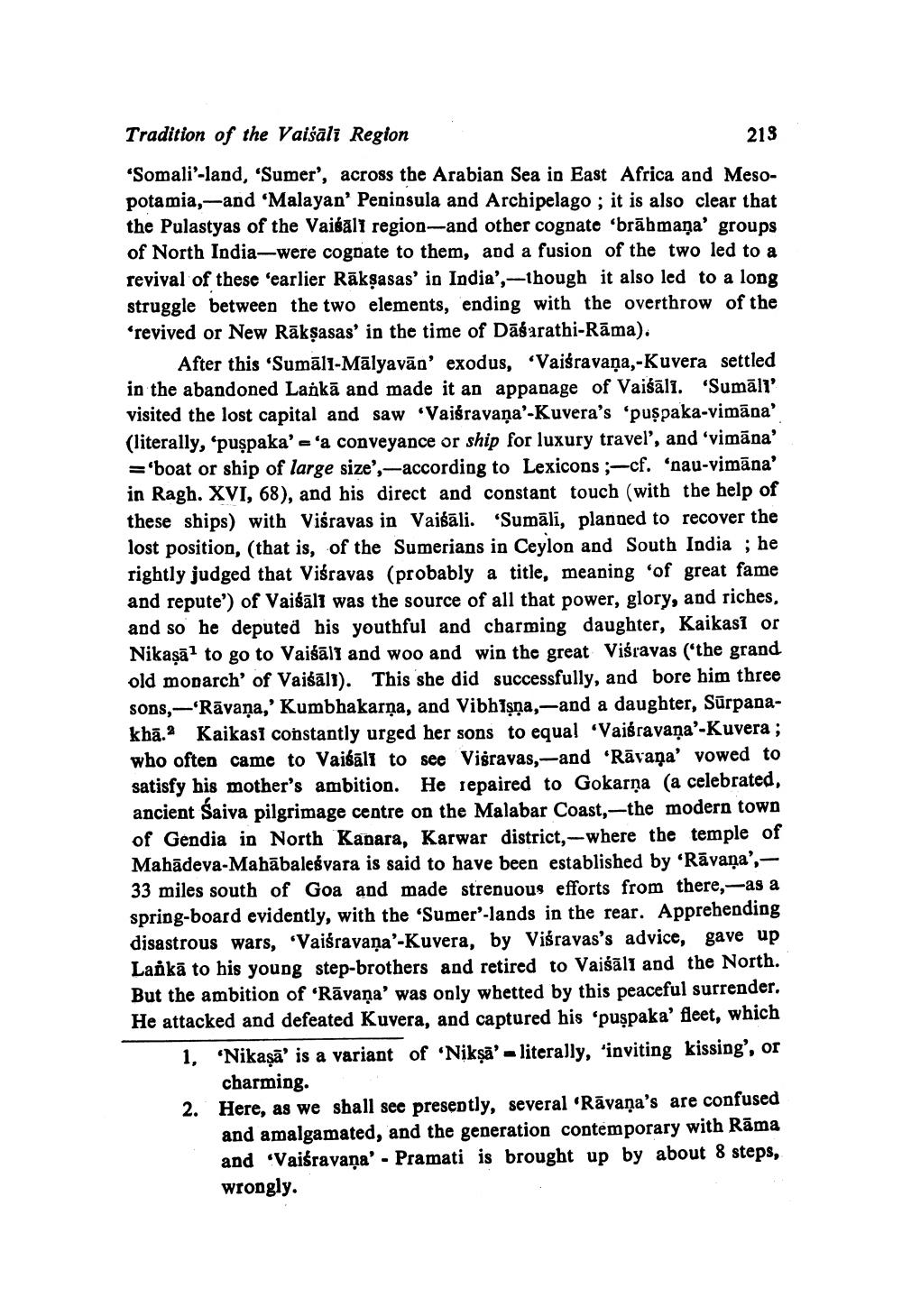________________ Tradition of the Vaisali Region 213 'Somali'-land, 'Sumer', across the Arabian Sea in East Africa and Mesopotamia,--and 'Malayan' Peninsula and Archipelago ; it is also clear that the Pulastyas of the Vaigali region--and other cognate 'brabmana' groups of North India-were cognate to them, and a fusion of the two led to a revival of these 'earlier Raksasas' in India',--though it also led to a long struggle between the two elements, ending with the overthrow of the 'revived or New Raksasas' in the time of Dasarathi-Rama). After this 'Sumali-Malyavan' exodus, Vaisravana,-Kuvera settled in the abandoned Lanka and made it an appanage of Vaisali. "Sumali' visited the lost capital and saw "Vaisravana'-Kuvera's 'puspaka-vimana' (literally, 'puspaka'-'a conveyance or ship for luxury travel', and 'vimana' ='boat or ship of large size',-according to Lexicons ;cf. 'nau-vimana' in Ragh. XVI, 68), and his direct and constant touch (with the help of these ships) with Visravas in Vaisali. 'Sumali, planned to recover the lost position, that is, of the Sumerians in Ceylon and South India ; he rightly judged that Visravas (probably a title, meaning of great fame and repute') of Vaisali was the source of all that power, glory, and riches, and so he deputed his youthful and charming daughter, Kaikasi or Nikasal to go to Vaisali and woo and win the great Visravas ("the grand old monarch' of Vaisali). This she did successfully, and bore him three sons,-'Ravana,' Kumbhakarna, and Vibhisna,--and a daughter, Surpanakha. Kaikasi constantly urged her sons to equal "Vaisravana'-Kuvera ; who often came to Vaisali to see Vigravas,-and 'Ravana' vowed to satisfy his mother's ambition. He repaired to Gokarna (a celebrated ancient Saiva pilgrimage centre on the Malabar Coast,--the modern town of Gendia in North Kanara, Karwar district,--where the temple of Mahadeva-Mahabalesvara is said to have been established by 'Ravana',33 miles south of Goa and made strenuous efforts from there, -as a spring-board evidently, with the 'Sumer'-lands in the rear. Apprehending disastrous wars, Vaisravana'-Kuvera, by Visravas's advice, gave up Laika to his young step-brothers and retired to Vaisali and the North. But the ambition of 'Ravana' was only whetted by this peaceful surrender, He attacked and defeated Kuvera, and captured his 'puspaka' fleet, which 1, "Nikasa' is a variant of "Niksa'-literally, 'inviting kissing', or charming. 2. Here, as we shall see presently, several 'Ravana's are confused and amalgamated, and the generation contemporary with Rama and "Vaisravana' - Pramati is brought up by about 8 steps, wrongly.




